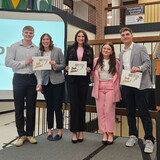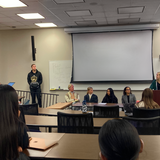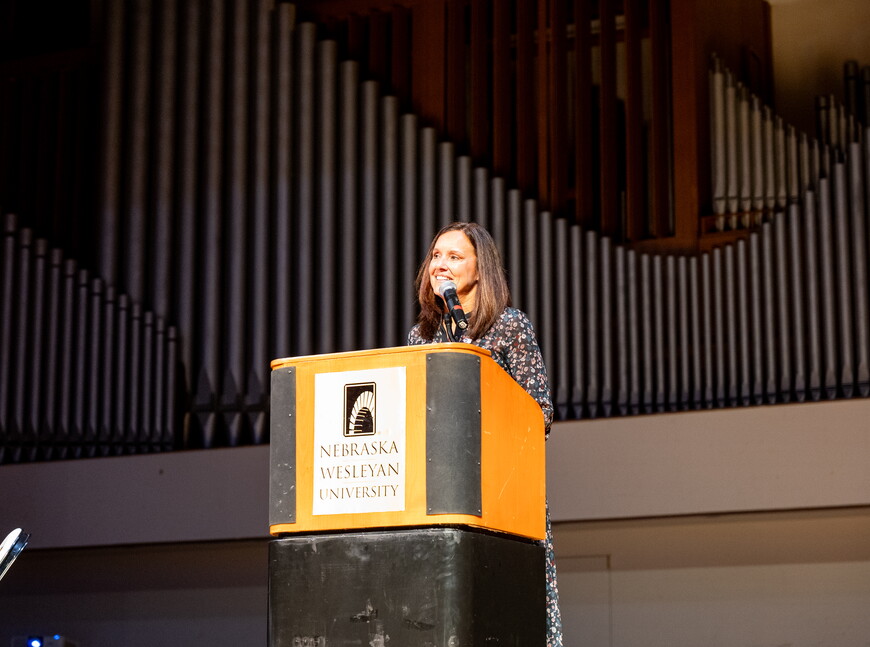The director of the United States Peace Corps recently issued Nebraska Wesleyan University students to challenge boundaries: geographic and personal.
Carol Spahn said stepping outside of comfort zones helps promote transformational, lasting change through service. “I can't imagine anything more powerful to do than serve,” she said.
Spahn delivered this year’s Curtis Lecture on Public Leadership on Wednesday. During her talk, “A Journey Beyond Borders,” she emphasized the importance of exploring opportunities for global involvement and question personal and societal boundaries. "I hope they’re inspired to try new things and get out of the echo chambers we often find ourselves in," she said.
She says service provides a unique chance to experience life from someone else’s perspective. "It stretches us, asks us to walk in someone else’s shoes, and deepens our understanding of the challenges people face."
She encouraged students to use this experience to ask deeper questions about the systems that create challenges. “What are the systems and structures that created the challenges that (people) are seeing? How can I make a difference in my local community or state or nation?”
Spahn said students have options to get involved whether locally in Lincoln’s refugee community, nationally through AmeriCorps, or internationally with the Peace Corps.
She said these opportunities provide a unique chance to experience life from someone else’s perspective. "It stretches us, asks us to walk in someone else’s shoes, and deepens our understanding of the challenges people face."
And, she says, most importantly service has meaning. “It truly brings us happiness. It comes from having a sense of purpose,” Spahn said. “That’s my invitation.”
Mildred Curtis established the Senator Carl T. Curtis and Mildred M. Curtis Lecture on Public Leadership in 2005 to honor her late husband and senator, and to explore aspects of public and civic leadership. The annual lecture features public service leaders such as federal and state officeholders, diplomats and leaders in areas of political science, history, human relations and communication.










